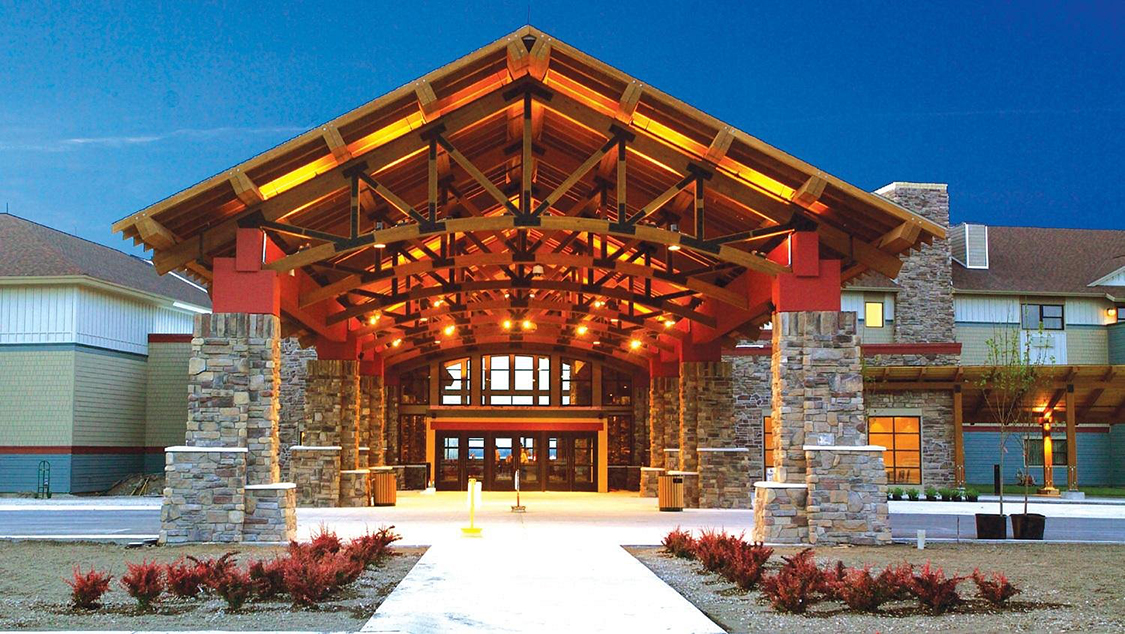Pioneering Land-Based Casino Expansion. For over a decade, the Sault Ste. Marie Tribe of Chippewa Indians (SSM Tribe) has been on a mission to broaden its presence by venturing into the realm of land-based casinos expansion. Operating five Kewadin Casinos across Michigan’s upper peninsula, the Tribe set its sights on further expansion into Lansing and New Boston.
Strategic Land Acquisitions : Casino Expansion
In 2012, the SSM Tribe made strategic land acquisitions, procuring 2.3 acres in Lansing and 71 acres in New Boston. These acquisitions were pivotal, laying the groundwork for the Tribe’s ambitious plans to establish new casinos in these locations, with the aim of driving economic growth and prosperity.
Legal Hurdles: A Battle with the US Department of Interior (DOI)
Despite the Tribe’s efforts, its aspirations faced a formidable legal obstacle. The US Department of Interior (DOI), tasked with overseeing tribal affairs, declined the Tribe’s request to take the acquired land into trust—a prerequisite for casino development. Citing the Michigan Indian Land Claims Settlement Act (MILCSA), the DOI argued that the Tribe’s Self-Sufficiency Fund couldn’t be utilized for gambling activities.
The Legal Battle Unfolds
Undeterred by the DOI’s decision, the SSM Tribe took legal action in 2018, contesting the agency’s stance, which it believed contravened the MILCSA and posed a threat to its future growth. However, the courts upheld the DOI’s decision, dealing a setback to the Tribe’s expansion plans.
A Persistent Pursuit of Justice
Refusing to yield, the SSM Tribe persisted in its quest for justice. In a recent development reported by PlayMichigan, the Tribe escalated the legal dispute by appealing to the DC Circuit Court. The Tribe sought to overturn the previous rulings, challenging the DOI’s decision and advocating for its right to proceed with the casino expansion
The Road Ahead: Potential Milestones Await
Should the DC Circuit Court rule in favor of the SSM Tribe, it could mark a significant breakthrough in the Tribe’s endeavor to expand its land-based gaming portfolio. A favorable verdict would pave the way for the land to be taken into trust, clearing the path for the realization of the Tribe’s vision to establish two new casino destinations in Lansing and New Boston.
Conclusion
The Sault Ste. Marie Tribe of Chippewa Indians’ pursuit of land-based casino expansion stands as a testament to its resilience and determination. Despite facing legal challenges, the Tribe remains steadfast in its commitment to realizing its growth aspirations and contributing to the economic prosperity of its communities.
FAQs About Sault Ste. Marie Tribe of Chippewa Indians (SSM Tribe)
- What is the Sault Ste. Marie Tribe of Chippewa Indians (SSM Tribe) pursuing?
The SSM Tribe is striving to expand its land-based presence by developing two new casinos in Lansing and New Boston.
- How long has the SSM Tribe been working on this expansion?
The Tribe has been making efforts for over a decade, with strategic land acquisitions dating back to 2012.
- What land did the SSM Tribe acquire for its expansion projects?
In 2012, the Tribe purchased 2.3 acres of land in Lansing and 71 acres in New Boston to facilitate its casino developments.
- Why did the US Department of Interior (DOI) refuse to take the acquired land into trust?
The DOI cited the Michigan Indian Land Claims Settlement Act (MILCSA), arguing that the Tribe’s Self-Sufficiency Fund couldn’t be used for gambling activities.
- What legal action did the SSM Tribe take in response to the DOI’s decision?
In 2018, the Tribe initiated a lawsuit, contesting the DOI’s refusal to take the land into trust, which it believed infringed upon the MILCSA.
- What recent development occurred in the legal battle?
The SSM Tribe appealed to the DC Circuit Court, seeking to overturn previous rulings and advocating for its right to proceed with the casino developments.
- What potential milestone awaits the SSM Tribe if the legal dispute is resolved in its favor?
A favorable ruling from the DC Circuit Court would enable the Tribe to take the land into trust, paving the way for the development of its planned casinos in Lansing and New Boston.
- How has the Tribe demonstrated its commitment to its expansion goals despite legal challenges?
Despite facing legal hurdles, the SSM Tribe remains resolute in its pursuit of land-based casino expansion, showcasing its determination to contribute to economic growth and community welfare.
- What impact could the successful expansion of the SSM Tribe’s casinos have on the local economies?
The establishment of new casinos in Lansing and New Boston could potentially stimulate economic growth and prosperity in the respective regions, generating employment opportunities and attracting visitors.
- How does the SSM Tribe’s expansion initiative align with its long-term vision and goals?
The Tribe’s pursuit of land-based casino expansion reflects its commitment to advancing its economic interests, fostering self-sufficiency, and enhancing the well-being of its members and communities.


















